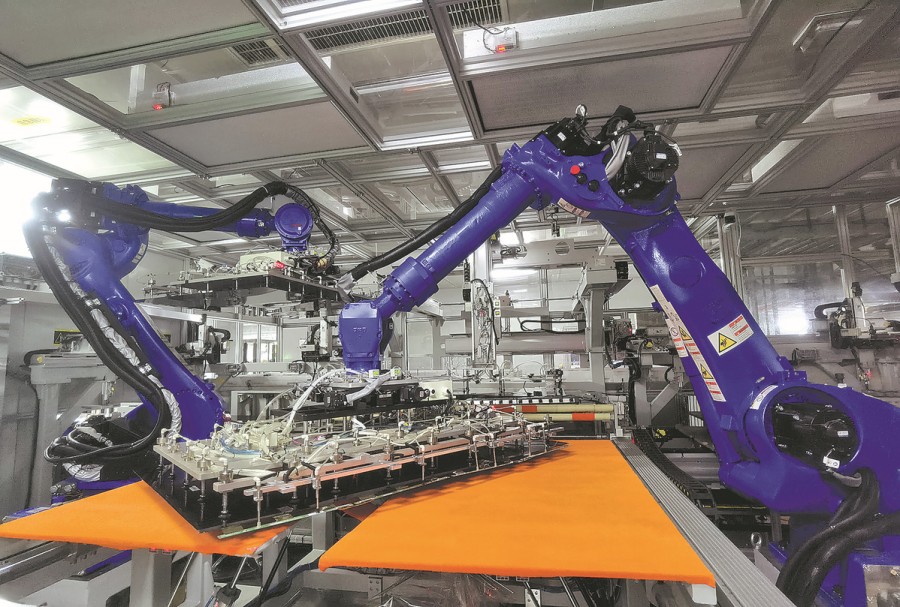Industrial upgrades crucial to propelling growth

Robots operate the production line of Hisense Group in Qingdao, Shandong province. [Photo/Xinhua]
A leading economist has called for heightened focus on harnessing cutting-edge technologies and supporting small and medium-sized enterprises to foster "new quality productive forces" and propel China's economic growth.
Huang Qunhui, head of the Chinese Academy of Social Sciences' Institute of Economics and a member of the 14th National Committee of the Chinese People's Political Consultative Conference, emphasized the importance of leveraging technological innovation and data-driven intelligence to modernize the industrial system and empower existing businesses.
The strategy involves establishing a modern industrial system through scientific and technological innovation while reinforcing the dominant role of enterprises in driving innovation.
"The development of new quality productive forces not only includes fostering new industries and new impetus with disruptive and cutting-edge technologies, but also facilitating the development of future-oriented industries and strategic emerging industries," he said.
Strategic emerging industries and future-oriented industries mainly include new energy, high-end equipment, biotechnology, artificial intelligence, quantum computing and humanoid robots.
The vision aligns with China's commitment, outlined in this year's Government Work Report, to prioritize the construction of a modern industrial system and expedite the development of new quality productive forces.
The term "new quality productive forces" denotes productivity liberated from traditional growth models, emphasizing high-tech, efficiency and quality in accordance with the nation's new development philosophy.
"How to leverage high-tech or the elements of new quality productive forces to empower the in-depth transformation and upgrading of traditional industries is very crucial," Huang said, adding that in the process of transforming and upgrading traditional segments, "it is very vital to improve the knowledge structure of workers engaged in traditional industries".
"They need to master intelligent, digital and green technologies through education and technical training," he said.
He said small and medium-sized enterprises will be pivotal players in the transformative process, requiring access to technological innovation sources and capital support. Huang urged efforts to stimulate the innovative spirit of entrepreneurs and incentivize increased investment in basic research.
Addressing the Government Work Report's GDP growth target of around 5 percent for this year, Huang suggested it aligns with the 14th Five-Year Plan (2021-25) and the broader goal of achieving socialist modernization by 2035.
Wang Qing, chief macroeconomic analyst at Golden Credit Rating International, said that achieving growth of around 5 percent this year will mean the economic growth momentum will be stronger than last year's due to a higher comparison base.
Wang said maintaining a medium-high economic growth rate of around 5 percent will not only ensure people's livelihoods and employment, maintain financial stability and defuse local debt risks, but also help create a favorable environment for accelerating the building of a modern industrial system and promoting high-quality development.
Copyright © The National Committee of the Chinese People's Political Consultative Conference.
All rights reserved. Presented by China Daily.
京ICP备08100501号-1

